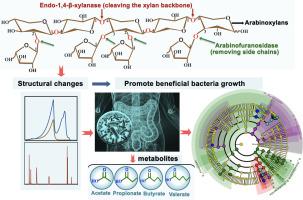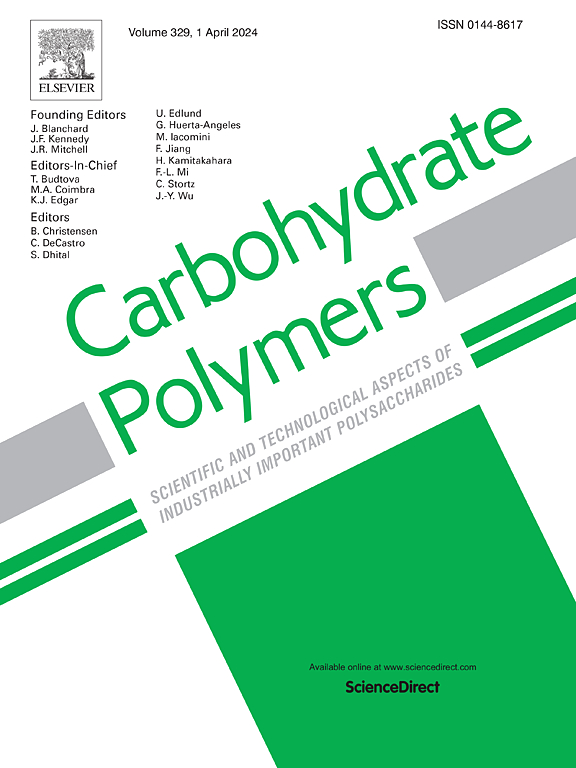Effect of glycoside hydrolase-mediated wheat arabinoxylan hydrolysate on gut microbiota and metabolite profiles
IF 10.7
1区 化学
Q1 CHEMISTRY, APPLIED
引用次数: 0
Abstract
Cereal arabinoxylans (AX) are complex non-digestible polysaccharides and their molecular structural features significantly influence their degradation and metabolic behaviors within the body. This study focuses on investigating the impact of wheat AX hydrolysates produced by different glycoside hydrolases on the gut microbiota during colonic fermentation. Endo-1,4-β-xylanase (XYN) and arabinofuranosidase (ARF) were used to hydrolyze the xylan backbone and remove the arabinose side chains, respectively. The digestive and degradation fate was analyzed through in vitro simulated gastrointestinal digestion and colonic fermentation models. Results indicated that all hydrolase-treated groups exhibited different intestinal flora community structures, characterized by enhanced diversity and reduced richness of gut microbiota, along with differentially enriched bacterial taxa compared to native AX. The glycosidase-treated group showed greater advantages in promoting the growth of beneficial bacteria such as Bacteroides, Ruminococcus, and Faecalibacterium and produced higher levels of beneficial metabolites, mainly acetate, butyrate and caproate. Lower degrees of polymerization and side-chain substitution in AX enzymatic hydrolysate, along with higher levels of arabinoxylan-oligosaccharides (AXOS) exhibited the optimal promotion effects. However, certain gut bacteria such as Prevotella and Bifidobacterium prefer structurally intact long-chain AX. This study demonstrates that AX hydrolysates with different molecular characteristics, induced by specific hydrolases selectively influence distinct microbial consortia. Higher levels of short-chain unsubstituted XOS are more effective at promoting intestinal health and maintaining intestinal homeostasis.

求助全文
约1分钟内获得全文
求助全文
来源期刊

Carbohydrate Polymers
化学-高分子科学
CiteScore
22.40
自引率
8.00%
发文量
1286
审稿时长
47 days
期刊介绍:
Carbohydrate Polymers stands as a prominent journal in the glycoscience field, dedicated to exploring and harnessing the potential of polysaccharides with applications spanning bioenergy, bioplastics, biomaterials, biorefining, chemistry, drug delivery, food, health, nanotechnology, packaging, paper, pharmaceuticals, medicine, oil recovery, textiles, tissue engineering, wood, and various aspects of glycoscience.
The journal emphasizes the central role of well-characterized carbohydrate polymers, highlighting their significance as the primary focus rather than a peripheral topic. Each paper must prominently feature at least one named carbohydrate polymer, evident in both citation and title, with a commitment to innovative research that advances scientific knowledge.
 求助内容:
求助内容: 应助结果提醒方式:
应助结果提醒方式:


